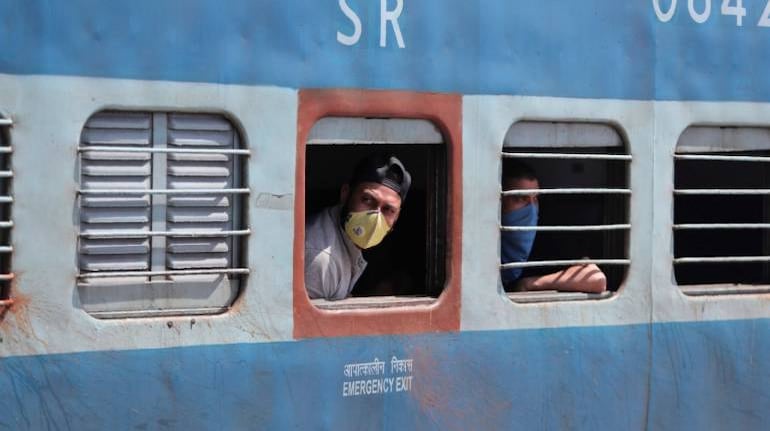



As the 21-day nationwide lockdown announced by Prime Minister Narendra Modi nears its end on April 14, the Railway Board has been looking at ways to commence a phased exit strategy. Railway Board Chairman Vinod Kumar Yadav on April 9 discussed steps that will be taken to kickstart services without jeopardising the safety of any traveller or staff.
To ensure this, the Centre is planning to divide the country into three zones — red, yellow and green — depending on the number of COVID-19 cases that have been reported from each zone. In red zones, where the number of cases is high, no transport services will be introduced, while in the yellow zones, restricted services will be started; in the green zones, there will not be any restriction in the number of services at all.
For live updates on coronavirus, click hereBesides, strict social distancing will have to be maintained inside trains as well to reduce risks of spreading the highly contagious and deadly disease. So, the middle berths in all three-tier and AC three-tier trains will have to be kept empty. Linen and food will also not be provided by any train service until the number of COVID-19 cases in the country starts reducing.
Moreover, only special trains will be running at this time and all other scheduled train services will stand cancelled.
That apart, thermal screenings will be conducted at all entry points and senior citizens (aged above 60 years) will not be allowed to travel for the time being, considering their susceptibility of contracting the disease. All passengers will be required to wear face masks; those found travelling without it will be fined and deboarded.
Here's a list of apps launched by Centre and state governments to tackle COVID-19 crisisUnreserved train travel will remain suspended as it would be difficult to trace and quarantine passengers of unreserved coaches in case one of them tests positive for COVID-19.
Yadav informed that most metro cities, with the exception of Kolkata, will fall under the red zone, based on current figures. Therefore, no train service connecting Mumbai, Delhi, Secunderabad, Chennai or Bengaluru can be expected at present. The situation will be reviewed on April 30 once again and services would be introduced in these cities only if the circumstances permit. No train will be halting at any hotspot either for safety reasons.
All General Managers have been asked to draw up plans detailing the originating and terminating stations for special train services along with a timetable mentioning the stoppages. Meanwhile, the state governments may be given a free hand to decide if they would like to start any train services that run within its boundaries.
Discover the latest Business News, Sensex, and Nifty updates. Obtain Personal Finance insights, tax queries, and expert opinions on Moneycontrol or download the Moneycontrol App to stay updated!
Find the best of Al News in one place, specially curated for you every weekend.
Stay on top of the latest tech trends and biggest startup news.